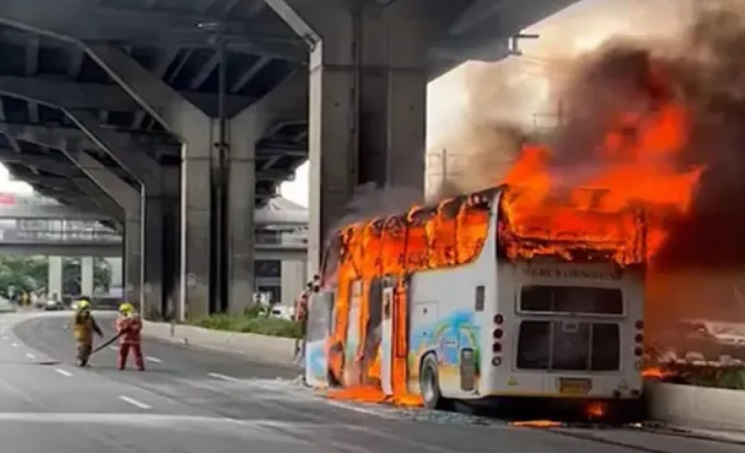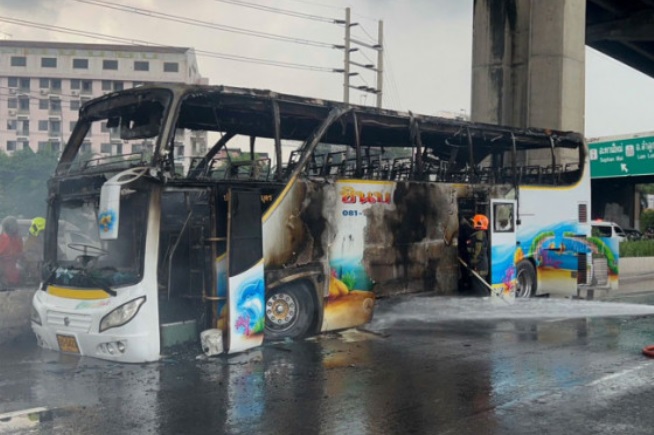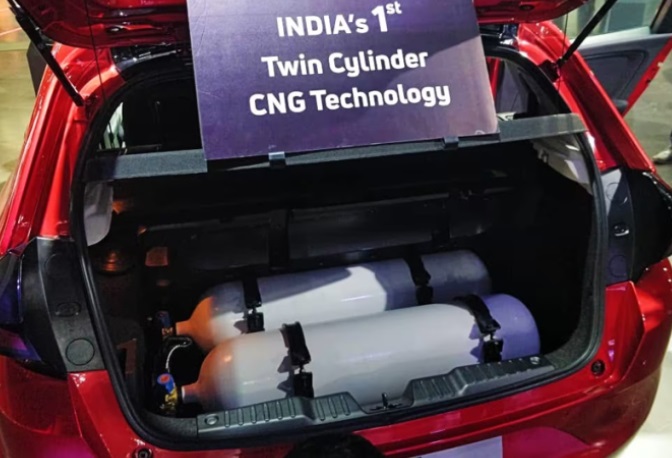Just past 12:30 pm on October 1st, a serious accident occurred on Vibhavadi Rangsit Road, near Bangkok.
A bus carrying 38 students and six teachers was on its way to an exhibition in Nonthaburi when it experienced a sudden tire blowout, causing the driver to lose control and crash into the median.
The collision created sparks from the metal barrier, igniting the bus’s compressed natural gas (CNG) tank. The fire quickly engulfed the passenger compartment, resulting in the tragic deaths of 20 students and three teachers, with many others injured and in critical condition.
Speaking to the media, Thailand’s Minister of Transport, Suriyahe Juangroongruangkit, expressed his concern about the high-risk nature of CNG fuel. He suggested that vehicles using this type of fuel may be banned from the roads in the future.
In fact, explosions and fires involving CNG-powered vehicles are not uncommon. Earlier this year, a Maruti Ciaz car accident on an Indian highway resulted in a fire that claimed five lives. A similar incident occurred in the US in February, where a CNG-powered truck caught fire, injuring nine people.
Compressed Natural Gas (CNG) is primarily composed of methane (CH4) and is derived from natural gas fields or associated gas in oil fields. It is typically stored in specialized cylinders under high pressure (200 – 250 bar).
CNG is used as fuel for vehicles with internal combustion engines, including auto rickshaws, pickup trucks, buses, school buses, and trains.
CNG offers several advantages, such as reduced emissions compared to gasoline and diesel engines, minimal smoke production, improved performance, and cost savings of 10-30% compared to other fuels.
Scientific studies have shown that CNG has a lower propensity to ignite on hot surfaces due to its high auto-ignition temperature (540 degrees Celsius) and narrow flammability range (5-15%). This means that unless the concentration of CNG in the air is between 5% and 15%, ignition will not occur. In comparison, gasoline has an auto-ignition temperature of 280 degrees Celsius and a flammability range of 1.4-7.6%, while diesel has an auto-ignition temperature of 210 degrees Celsius.
However, due to the extremely high pressure at which CNG is stored, collisions can result in cylinder ruptures. If an ignition source is present, this can lead to explosions, as seen in the Thai bus incident.
Additionally, the use of substandard or poorly maintained cylinders can also pose an explosion risk. The rapid spread of flames and the potential for asphyxiation in the event of a leak further contribute to the dangers associated with CNG-powered vehicles.
Despite its advantages, CNG-fueled vehicles account for only 2% of the global vehicle population of 23 million. Countries like Iran, Pakistan, Argentina, Brazil, China, India, Thailand, Indonesia, and Uzbekistan are among the top adopters of this fuel type.
To prevent tragic incidents like the one in Thailand, several precautions should be taken when using CNG-powered vehicles:
First, regular maintenance of both the vehicle and the CNG cylinders is crucial.
Second, during refueling, the engine should be turned off, and CNG should be dispensed according to regulations, without exceeding the permitted pressure.
Third, prolonged parking in direct sunlight should be avoided, as it can cause the CNG storage compartment to overheat and potentially explode.
Finally, smoking inside the vehicle is strictly prohibited, as cigarette embers can ignite CNG and lead to explosions.
TH (Tuoitrethudo)












































